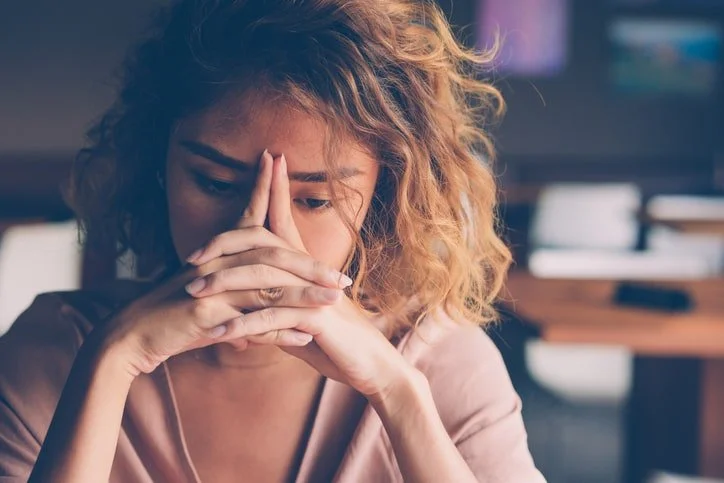Am I Depressed or Just Burned Out? How to Tell the Difference (and What to Do Next)
You’re Exhausted… But Is It Depression or Burnout?
You’re running on empty. You wake up tired, dread the day ahead, and no matter how much you push, you feel like you’re barely holding it together. The question runs through your mind: “Am I just burned out… or is this depression?”
It’s a scary thought—and you’re not alone in asking it. Many people who feel overwhelmed, drained, or unmotivated aren’t sure which they’re dealing with. And here’s the truth: burnout and depression can look a lot alike, but they aren’t the same.
Knowing the difference matters. It can help you get the right support, start feeling better, and avoid blaming yourself for what you’re going through.
Let’s break it down together—clearly, simply, and without judgment.
What Is Burnout?
Burnout is what happens when chronic stress wears you down. It’s your body and mind saying: “Enough. I can’t keep going at this pace.”
It often shows up when:
Work demands pile up endlessly
Caregiving responsibilities feel non-stop
You’re “always on” but never able to rest
Burnout is less about who you are and more about the environment you’re in. It’s your system trying to protect you by shutting things down.
Common Signs of Burnout
Feeling physically and emotionally drained most of the time
Struggling to focus or stay motivated
Becoming more negative, irritable, or detached
A sense of emptiness or lack of meaning in your work or daily roles
Relief when you step away from the stressful environment (weekends, vacations)
What Is Depression?
Depression is more than exhaustion—it’s a mental health condition that can affect every part of life. Unlike burnout, depression doesn’t only show up in one area (like work). It lingers everywhere: relationships, hobbies, health, even self-worth.
Common Signs of Depression
Persistent sadness, hopelessness, or numbness
Loss of interest in things you used to enjoy
Sleep changes (too much or too little)
Appetite changes (eating more or less than usual)
Feeling worthless or guilty, even when you haven’t done anything wrong
Trouble concentrating or making decisions
Thoughts that life isn’t worth living
Depression doesn’t go away just because you take a vacation or get a break from stress. It requires care, support, and often professional help.
The Overlap: Why They Feel So Similar
Here’s why it’s confusing: burnout and depression share symptoms. Both can make you feel exhausted, unmotivated, and detached from life.
The key differences are:
Scope: Burnout is usually tied to a specific role (like work or caregiving). Depression affects all areas of life.
Relief: Burnout may ease when you rest or change your environment. Depression persists no matter what’s happening externally.
Self-Perception: Burnout often makes you resentful or detached. Depression adds heavy layers of guilt, shame, or hopelessness.
A Quick Self-Check: 3 Questions to Ask Yourself
If you’re wondering which you’re facing, try these:
Does time away help?
If breaks or vacations bring relief → more likely burnout.
If you still feel low despite rest → more likely depression.
Is it everywhere, or just one area?
If it’s mostly tied to work or one role → likely burnout.
If it spills into hobbies, relationships, and daily life → likely depression.
Do you feel hopeless or guilty?
If it’s more irritation and frustration → burnout.
If it’s deep sadness, hopelessness, or self-blame → depression.
(This isn’t a diagnosis—just a starting point to notice patterns.)
Why It Matters to Know the Difference
If you’re burned out, you may need changes in boundaries, workload, and self-care routines. If you’re depressed, you may need therapy, medication, or deeper healing work.
Sometimes, burnout can even lead to depression if it’s ignored. That’s why paying attention now matters—you deserve support before it gets heavier.
How to Cope with Burnout
If you’re leaning toward burnout, here are steps that can help:
Set boundaries: Learn to say no without guilt.
Take real breaks: Not scrolling—resting.
Shift perspective: Find small moments of meaning outside of work/caregiving.
Seek connection: Talk to others who understand; don’t isolate.
Professional support: A therapist can help you sort priorities and build healthier balance.
How to Cope with Depression
If signs point more to depression, here’s what can help:
Reach out for support: You don’t have to face it alone.
Consider therapy: A therapist can help you untangle hopelessness and find small steps forward.
Check with your doctor: Sometimes medication supports healing.
Build small routines: Tiny wins (getting dressed, short walks) matter.
Challenge shame: Depression is not weakness—it’s something human and treatable.
When It Might Be Both
Sometimes it’s not either/or. Burnout and depression can feed into each other. You may start with burnout, and over time it deepens into depression. Or depression may make you more vulnerable to burning out.
The good news: helping one helps the other. Therapy, rest, boundaries, and support can untangle both.
When to Reach Out for Help
If you’re stuck wondering, the best next step is to talk to someone trained to help. Signs it’s time to reach out:
You’ve felt this way for more than 2 weeks
You’re losing interest in everything you used to enjoy
You feel hopeless or worthless
You’ve had thoughts of not wanting to be here
You don’t have to figure it out alone. Therapy gives you a safe place to sort through what you’re experiencing—and start feeling like yourself again.
Online Therapy in Chicago & Illinois
At Mindful Healing Counseling, we know how heavy it feels to wonder whether you’re “just burned out” or facing something bigger. Our therapists offer compassionate, culturally affirming care—so you don’t have to explain yourself or carry the weight alone.
Wherever you are in Illinois—Chicago, the suburbs, or a small town—we’re here to help. Together, we’ll build tools to lighten the load, restore your energy, and help you feel more like you again.


